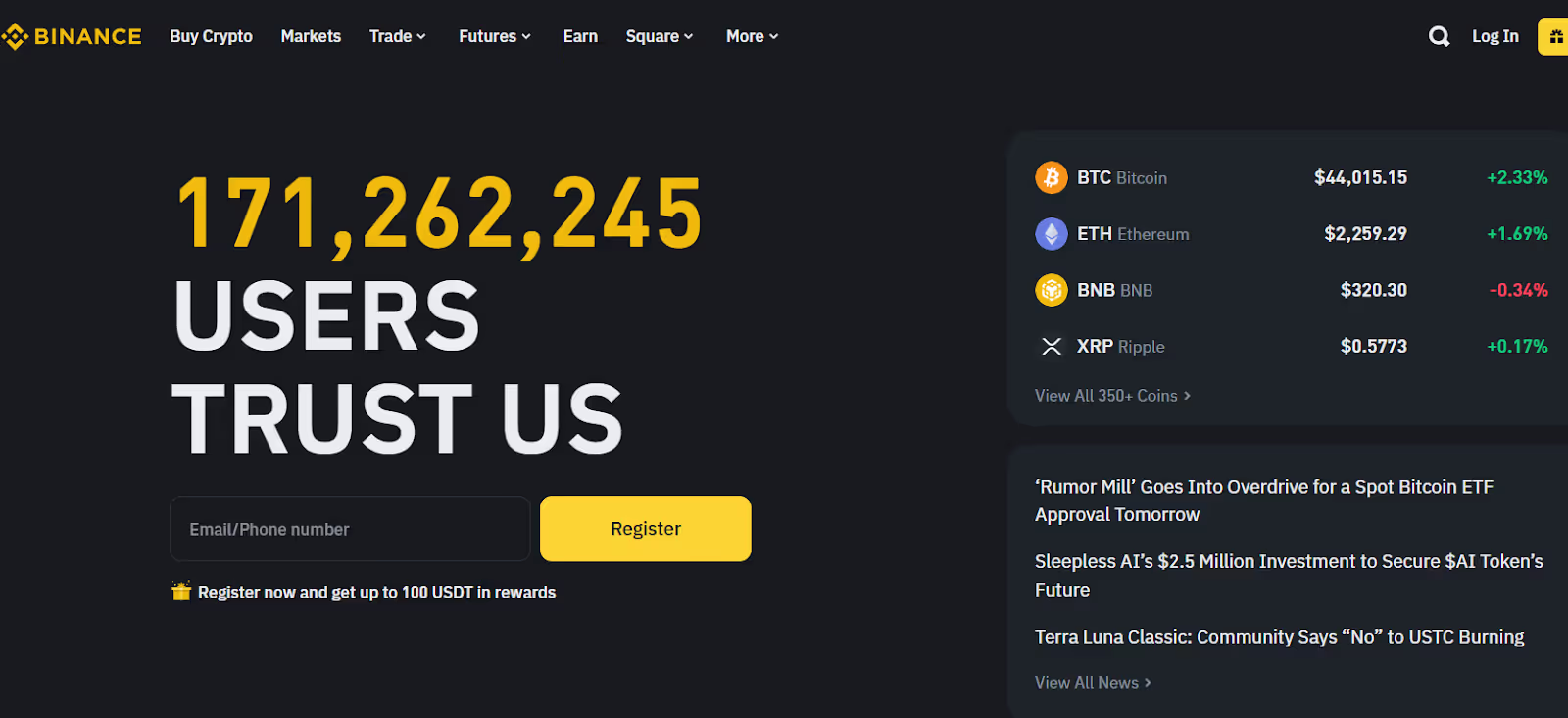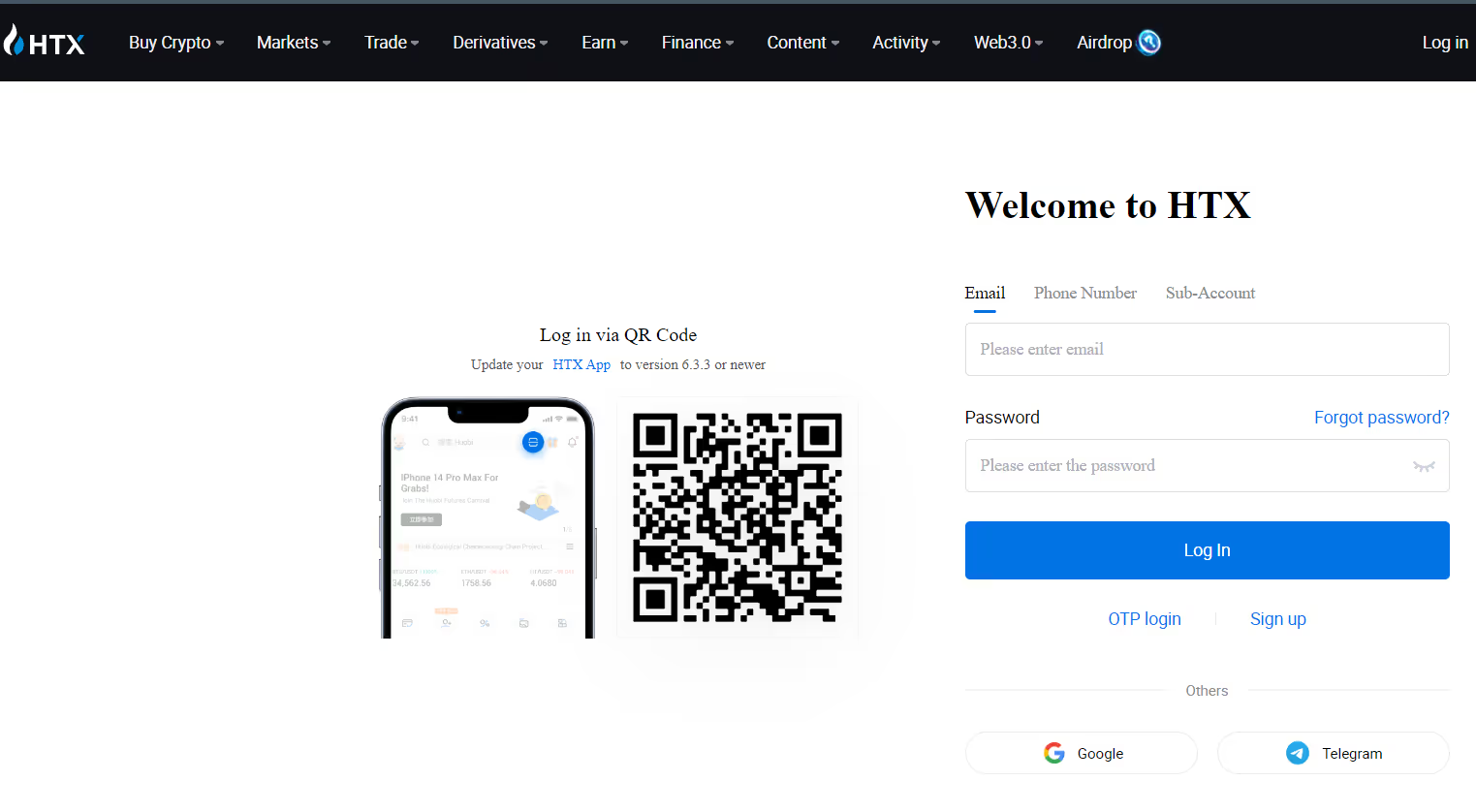
With the arrival of the long-awaited crypto bull run, the market is back on its feet again. And as investors flock in to convert their fiat into crypto assets, they have a decision to make, one that is closely linked to the security of their assets.
Which exchange should I buy these assets from?
The current market is flooded with crypto exchanges left, right and centre and while that is a good thing when it comes to choices, not all of them are trustworthy and immune to scams and frauds.
That is exactly why picking the right crypto exchange is pivotal for crypto investors in Poland to ensure the safety of their investments and be at peace. The Polish crypto exchange market boasts a strong network of reliable exchanges of which we have picked the top ones to help investors make the right call. Here, we present the top 5 crypto exchanges in Poland for 2024, considering factors like supported currencies, fees, regulations, and user-friendly features.
1. Uphold

Uphold is a San Francisco-based platform regulated by the UK's Financial Conduct Authority (FCA), offering access to a wide range of assets including 210 cryptocurrencies, stocks, and ETFs. In Poland, Uphold facilitates Polish Zloty (PLN) and Euro (EUR) deposits from major banks. With user-friendly features like market data charts and risk management tools, Uphold caters to beginners and experienced traders alike. Notably, it supports multiple languages including Polish and offers free deposits for PLN and EUR via bank and SEPA transfers.
2. Bitpanda

Based in Vienna, Bitpanda is regulated by Austria's Financial Market Authority (FMA), providing access to 200+ cryptocurrencies for buying and selling. This user-friendly platform supports Euro (EUR) and Swiss Franc (CHF) transactions, offering a free wallet and competitive fees ranging from 0.2% to 1%. Bitpanda allows deposits via bank transfer, debit card, NETELLER, bank wire, and PayPal, ensuring ease of access for Polish users.
3. Binance

Binance, a globally recognized exchange with headquarters in Dubai, offers over 300 coins for trading across spot and futures markets. Supporting PLN, EUR, and USD deposits from major banks, Binance stands out for its low transaction fees, swift deposit/withdrawal times, and advanced features like futures trading with leverage up to 25x. Regulated by the Polish Financial Supervision Authority, Binance provides comprehensive customer support and diverse deposit methods including credit cards, Apple Pay, and more.
4. OKX

Established in 2017, OKX is an international exchange offering a broad spectrum of financial services. With over 100 cryptocurrencies available, OKX provides avenues for passive income through staking, lending, margin trading, NFT trading, and more. The platform emphasises security with features like secure cold storage and an NFT Marketplace, making it a comprehensive choice for diverse investment strategies.
5. Huobi

Huobi Global, founded in China and headquartered in Seychelles, offers a wide range of assets with 400+ supported assets and various trading options. While lacking clear information on licensing, Huobi Global provides an advanced interface, trading bot, Smart-Chain analysis, and multiple investment options including spot trading, margin trading, staking, and lending.
Conclusion
Every exchange on this list is a reliable choice and will have you spoilt for choices in terms of variety of features and the number of assets available for investing. While curating this list our primary goal was to offer a list of exchanges that had a promising security layer in addition to a suit of features, and a variety of cryptocurrencies for investors. Here at Kryptos, we prioritise the security of our users, that’s why our crypto tax tool only integrates with safe and secure crypto exchanges such as the ones mentioned in this list.
| Step | Form | Purpose | Action |
|---|---|---|---|
| 1 | 1099-DA | Reports digital asset sales or exchanges | Use to fill out Form 8949. |
| 2 | Form 1099-MISC | Reports miscellaneous crypto income | Use to fill out Schedule 1 or C. |
| 3 | Form 8949 | Details individual transactions | List each transaction here. |
| 4 | Schedule D | Summarizes capital gains/losses | Transfer totals from Form 8949. |
| 5 | Schedule 1 | Reports miscellaneous income | Include miscellaneous income (if not self-employment). |
| 6 | Schedule C | Reports self-employment income | Include self-employment income and expenses. |
| 7 | Form W-2 | Reports wages (if paid in Bitcoin) | Include wages in total income. |
| 8 | Form 1040 | Primary tax return | Summarize all income, deductions, and tax owed. |
| Date | Event/Requirement |
|---|---|
| January 1, 2025 | Brokers begin tracking and reporting digital asset transactions. |
| February 2026 | Brokers issue Form 1099-DA for the 2025 tax year to taxpayers. |
| April 15, 2026 | Deadline for taxpayers to file their 2025 tax returns with IRS data. |
| Timeline Event | Description |
|---|---|
| Before January 1, 2025 | Taxpayers must identify wallets and accounts containing digital assets and document unused basis. |
| January 1, 2025 | Snapshot date for confirming remaining digital assets in wallets and accounts. |
| March 2025 | Brokers begin issuing Form 1099-DA, reflecting a wallet-specific basis. |
| Before Filing 2025 Tax Returns | Taxpayers must finalize their Safe Harbor Allocation to ensure compliance and avoid penalties. |
| Feature | Use Case Scenario | Technical Details |
|---|---|---|
| Automated Monitoring of Transactions | Alice uses staking on Ethereum 2.0 and yield farming on Uniswap. Kryptos automates tracking of her staking rewards and LP tokens across platforms. | Integrates with Ethereum and Uniswap APIs for real-time tracking and monitoring of transactions. |
| Comprehensive Data Collection | Bob switches between liquidity pools and staking protocols. Kryptos aggregates all transactions, including historical data. | Pulls and consolidates data from multiple sources and supports historical data imports. |
| Advanced Tax Categorization | Carol earns from staking Polkadot and yield farming on Aave. Kryptos categorizes her rewards as ordinary income and investment income. | Uses jurisdiction-specific rules to categorize rewards and guarantee compliance with local tax regulations. |
| Dynamic FMV Calculation | Dave redeems LP tokens for Ethereum and stablecoins. Kryptos calculates the fair market value (FMV) at redemption and during sales. | Updates FMV based on market data and accurately calculates capital gains for transactions. |
| Handling Complex DeFi Transactions | Eve engages in multi-step DeFi transactions. Kryptos tracks value changes and tax implications throughout these processes. | Manages multi-step transactions, including swaps and staking, for comprehensive tax reporting. |
| Real-Time Alerts and Updates | Frank receives alerts on contemporary tax regulations affecting DeFi. Kryptos keeps him updated on relevant changes in tax laws. | Observe regulatory updates and provide real-time alerts about changes in tax regulations. |
| Seamless Tax Reporting Integration | Grace files taxes using TurboTax. Kryptos integrates with TurboTax to import staking and yield farming data easily. | Direct integration with tax software like TurboTax for smooth data import and multi-jurisdictional reporting. |
| Investor Type | Impact of Crypto Tax Updates 2025 |
|---|---|
| Retail Investors | Standardized crypto reporting regulations make tax filing easier, but increased IRS visibility raises the risk of audits. |
| Traders & HFT Users | To ensure crypto tax compliance, the IRS is increasing its scrutiny and requiring precise cost-basis calculations across several exchanges. |
| Defi & Staking Participants | The regulations for reporting crypto transactions for staking rewards, lending, and governance tokens are unclear, and there is a lack of standardization for decentralized platforms. |
| NFT Creators & Buyers | Confusion over crypto capital gains tax in 2025, including the taxation of NFT flips, royalties, and transactions across several blockchains. |
| Crypto Payments & Businesses | Merchants who take Bitcoin, USDC, and other digital assets must track crypto capital gains for each transaction, which increases crypto tax compliance requirements. |
| Event | Consequences | Penalties |
|---|---|---|
| Reporting Failure | The tax authorities can mark uncontrolled revenues and further investigate. | Penalty fines, interest on unpaid taxes and potential fraud fees if they are deliberately occurring. |
| Misreporting CGT | Misreporting CGT Error reporting profits or losses can trigger the IRS audit. | 20% fine on under -ported zodiac signs, as well as tax and interest. |
| Using decentralized exchanges (DEXs) or mixers without records | The IRS can track anonymous transactions and demand documentation. | Possible tax evasion fee and significant fine. |
| Disregarding Bitcoin mining tax liabilities | Mining reward is considered taxable income, and failure of the report can be regarded as tax fraud. | Further tax obligations, punishment and potential legal steps. |
| Foreign crypto holdings: Non-disclosure | Foreign-accepted crypto FATCA may be subject to reporting rules. | Heavy fines (up to $ 10,000 per fracture) or prosecution for intentional non-transport. |



